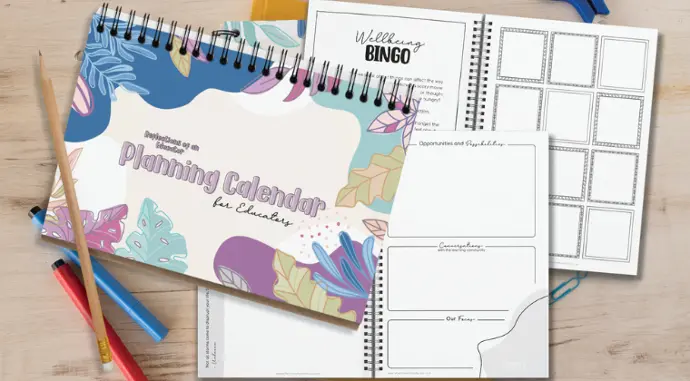Amidst the hustle and bustle of our daily grind as educators, the concept of critical reflection often remains blurred. You may ask, what exactly is it? And more importantly, how can we seamlessly integrate it into our jam-packed schedules? Before diving into the depths of this practice, let's start by shedding light on its fundamental definitions.
Critical thinking can be defined as a purposeful way of thought that examines, considers and questions ideas and concepts.
Reflection can be defined as the action of evaluating, reviewing and linking concepts, and experiences together.
When we pair critical thought with reflection, it is then that magic can occur and critical reflection is born.
As we think critically; we question, analyse and interpret information differently. Picture this: You're casually scrolling through your socials, and BAM! You're hit with an ad promising you'll look twenty years younger overnight with some magical face cream? Sounds too good to be true, right? Chances are, you likely engaged in a subtle dance of scepticism, questioning, and analysing, the claims before you. That's critical reflection in action – the art of sifting through the info layers, separating fact from fiction and chasing down the elusive truth beneath the surface. Your inner detective kicked in, urging you to dig deeper and see beyond the hype. The next time you encounter those tempting ads, trust your critical thinking skills to see through the smoke and mirrors.
An important concept behind critical reflection as an idea on its own is that reflection isn’t critical until it is shared (https://www.acecqa.gov.au/sites/default/files/2019-04/ACECQA_Educational_Leader_Manual_WEB.pdf). In the whirlwind of our busy lives as early years professionals, finding the time to share our thoughts can feel like mission impossible! However, it IS possible to weave reflection seamlessly into our busy days without adding to the chaos. Let's dive into how we can simplify and wholeheartedly embrace the art of critical reflection.
Ever feel like critical reflection is lost in paperwork land? You know, those rigid 'reflective questions' crammed into the end of every planning cycle? But, our growth doesn't fit into neat little boxes (and our cycles shouldn't end either – but that's a blog for another time!). But here's the kicker: legislation, frameworks, and research don't specify fixed timelines or methods for reflection. So, let's break free from the templates, ditch the timelines, and re-discover reflection as a dynamic, spontaneous journey of growth and insight.
To truly embed authentic and genuine reflective practice, it is crucial for it to flow, shift, and be adaptable. It should ebb and flow, shifting with the tides of the experiences, into something new each day, week or even between different learning environments. It's time to say goodbye to the notion of a set weekly reflective question! Let's watch it ride off into the sunset.
To make reflection truly impactful, let's invite external perspectives to the party. This may start with referencing a theorist, using or sharing an article or blog post, or even just jotting down a conversation you had with a colleague. Evidence of reflection should be as varied as the thoughts we're pondering. Think mind maps, explanations on photos, displays on walls, collaborative journals, voice memos, meeting minutes, track changes in documents, reflective journals such as “Reflections of an Educator” or simply dot points gathered daily.
It may help to think of quality improvement plans as the beating heart of ongoing reflection. When they're kept alive with regular updates and shared across the team, they become the ultimate symbolisation of your commitment to growth. Plus, they're a gemstone of evidence showing just how much we're constantly evolving and improving. (https://www.acecqa.gov.au/sites/default/files/2020-03/QA7_Introduction.pdf)
Let's skip the weekly reflective question cycle! It leads us to answer closed-ended questions and preset topics that might not suit our current needs. Rather than adding another task to our busy schedules, let's adopt a strength-based approach to reflection. By recognising our strengths, and interests while focusing on solutions to challenges, we can customise reflection to fit our unique journey, making it more meaningful and manageable.
Remember, when we reflect critically it should be simple, sustainable ongoing and every day. We can reflect in-action, live in the moment, as well as reflect on-action - after the moment. The most important idea though, reflection should never feel like a chore. It's meant to be a tool we eagerly embrace - a chance to pause, ponder, and grow.
“It is only when you really know yourself, that you can truly shine.”
Reflecting with Colleagues
Studies have shown the powerful impact of shared critical reflection in educational settings (https://www.education.gov.au/early-childhood/resources/leading-learning-circles-educators-engaged-study). Creating reflective circles, where professionals gather to share ideas and tackle challenges in a purposeful, solution-focused manner, has led to significant and ongoing positive change.
Reflecting with Children
Including the voice of the child in our reflective practices can be blended seamlessly into our daily routines and add a touch of wonder without complicating our busy schedules. As children discover new interests, raise thoughts, or ask questions we can eagerly embrace their perspectives by using strategies and tools like reflective/collaborative journals, posters, and jottings to effortlessly capture their unique insights. Let's create time and space where their voices shine, enriching our reflective journey with their genuine wonder and curiosity.

Spark Curiosity with Inquiry Questions
Educators may pose inquiry questions to spark engaging conversations and empower children to shape their learning experiences such as
“What do you know about…”
“What do you want to know?”
“What are you curious about?”
“What should we do next?”
These questions empower children to contribute and share their thoughts on educational programs, and also purposefully shaping your pedagogical reflections. By incorporating their insights directly into your plans, you not only validate their voices but also streamline your pedagogical practices and processes. It's a win-win – children’s voices are heard, your reflections are enriched, and your workload lightens!
Reflecting on-action and Reflecting in-action
When thinking of reflection, we often think of reflecting on-action – thinking about prior actions and situations after the fact. While reflecting on our actions is key to our practice, equally essential is the notion of reflecting in-action. This involves actively shaping our practice in real-time, steering it towards positive change as we go. It's a pivotal concept in reflection.
Create Evidence with Ease!
Capture evidence of your reflection journey through photos, annotations, learning stories, program documentation, or daily notes. It's one of the easiest and most impactful ways to enhance your daily practice!
Our Reflections Of An Educator resources we purposefully created to assist in this area.

Environments for Reflection
Stepping out of our comfort zone, questioning ourselves and challenging or inspiring others can be confronting and daunting. Fostering a vibrant culture of professional inquiry, where team members feel safe to voice questions and concerns is crucial. Can you think of a time when you dared to suggest something “outside of the box”? Perhaps a time when you weren’t sure how your suggestions would be received, or did it challenge the notion of “Because we’ve always done it that way”? What needed to be in place for you to feel comfortable, secure, and supported to raise those thoughts? Often, cultivating an environment of openness, respect, and appreciation for independent thinking and innovation is key. This culture is best nurtured through ongoing, systemic efforts at reflection—individually, within teams, and across the broader service. It's through reflection that we not only embrace but also truly embody the essence of reflection itself.
Let's stop delaying our reflections any longer. Begin now. Start small. Start simple. Just take a moment to ponder your practice – then put pen to paper (or fingers to keyboards). It's time to embrace the power of reflection and unlock its potential.

Want More On Critical Reflection?
Check out our program, Pondering Practice! Available as an in service workshop or an online course it is the perfect answer to your critical reflection questions.
Author: Briana Thorne